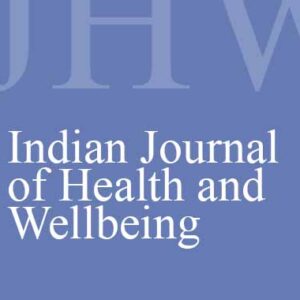
Impact of biofeedback therapy on somatoform disorders with co-morbid depression
Pages: 965-968
Aditya Gupta, G.D. Koolwal, Sanjay Gehlot and Sanjeev Kumar Verma (Department of Psychiatry Dr. S.N. Medical College Jodhpur, Rajasthan, India)
The current study aims to find out the outcome of biofeedback therapy in subjects suffering from somatoform disorders associated with co-morbid depression. The study was conducted at psychiatric center, Jodhpur. Subjects were grouped into experimental and control groups, and those labeled experimental group were given suitable anti- depressant and biofeedback therapy (six sessions), spread over 6 weeks, while subjects comprising control group were kept on pharmacotherapy alone. Hamilton depression rating scale (HDRS) and patient health questionnaire (PHQ-15) were used. In the present study, 90 patients were recruited out of which 78 patients completed the study. After 6 weeks of therapy, among the experimental group, the number of patients with no depression increased, and the mean score on HDRS also decreased. The mean score on PHQ also decreased showing improvement in somatoform symptoms. The t-value is significant in the experimental group, not in the control group. The present study favors biofeedback as an additional therapy, especially for relaxation and coping with the illness. This study, however, was over a short period of time, and further longitudinal studies incorporating other behavior therapy modalities are required.
Description
Pages: 965-968
Aditya Gupta, G.D. Koolwal, Sanjay Gehlot and Sanjeev Kumar Verma (Department of Psychiatry Dr. S.N. Medical College Jodhpur, Rajasthan, India)
